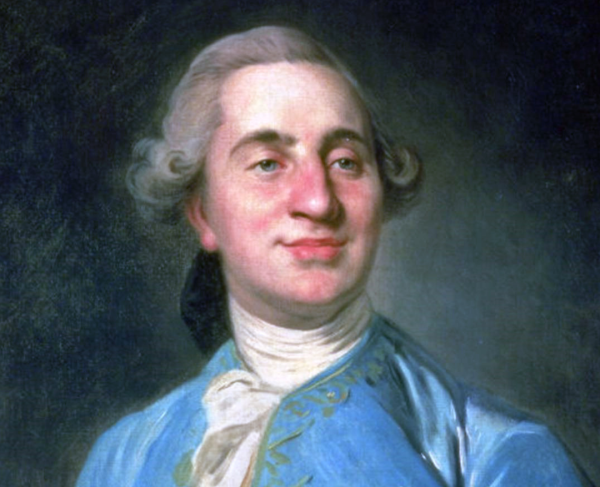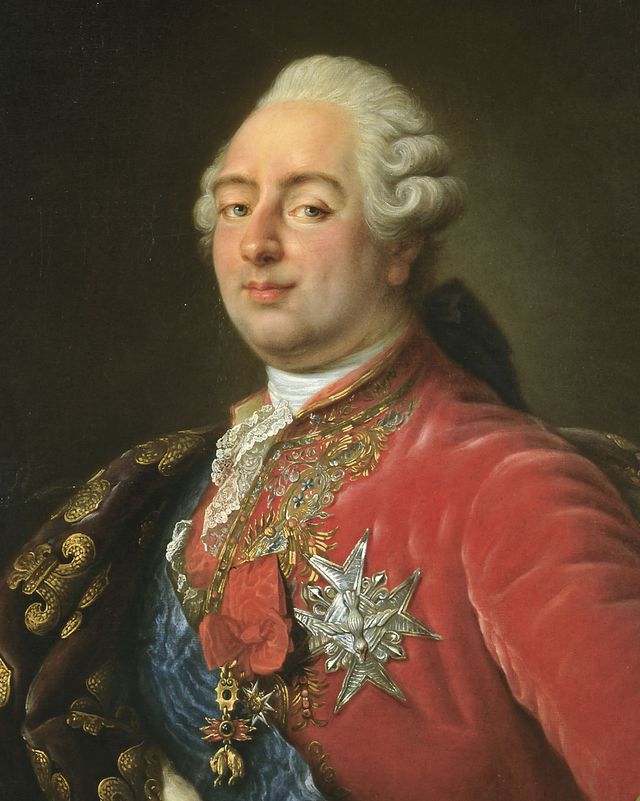The Bourbons were a dynasty of big appetites - for power, food and love. The position of maitresse-en-titre to the king was a coveted and influential one and the kings certainly did not hold back. Whereas both Louis XIV and Louis XV had several official mistresses - and a myriad of unofficial ones - the last king of Versailles never followed in his forefathers' footsteps.
The place of the king's official mistress brought an avalanche of benefits for the people connected with the lady in question. Positions at court, favours, estates, money - everything was within reach for the family of the one who had the king's ear. Thus, it is hardly surprising that the courtiers of Versailles were eager to place a suitable young mistress before the new king, Louis XVI.
For years, the marriage between Louis XVI and Marie Antoinette was infamously sterile; the constant scrutiny and humiliating rumours can hardly have induced the king to take a mistress, especially as it would undoubtedly raise questions regarding his marriage. After all, if the king turned out to be able to have a physical relationship with another woman, what would that say about the queen?
 |
| Louis XVI |
However, once Marie Antoinette fell pregnant in 1778, the court immediately expected Louis to take a mistress. For one, he had proven that he was physically capable of intimacy. Furthermore, it was customary not to continue nocturnal visits to one's wife if she was pregnant for fear of a miscarriage; especially, if the baby was the longed-for heir to the throne.
Interestingly, even Marie Antoinette herself was concerned that her husband might turn his attentions elsewhere. She confided in her brother that she would do her utmost to regain his affections, if he were to stray. Meanwhile, the courtiers snatched at straws in feeble attempts at placing the king's affections. The poor Louis could hardly look at a woman without immediately hearing rumours of his being infatuated with her. On one occasion, he had innocently looked at a newcomer to the theatre and asked her name - immediately, rumours began circulating that the king was interested in her.
Lady Antonia Fraser claims that the Duc de Fronsac even attempted to tempt the king by parading his own, very beautiful mistress before the king. The result was futile as the king considered the "offering" to be offensive. The lady in question - an opera dancer - was far from the only one who was assumed to be a viable candidate for the king's affections.
Some were more loyal to the king's decision. For instance, at a supper at M. de Merville, a lady asked who the king's mistress was. In response, the gracious host allegedly responded with "the Nation".
Finally, in February 1782, Louis XVI made the matter clear once and for all. He was heard to loudly disclaim:
"Everyone would like me to take a mistress but I have no intention of doing so. I do not wish to recreate the scenes of the previous reigns"
The king undoubtedly referred to both the public humiliations endured by Marie Thérèse and Marie Leszczynska as well as the immoral concept of adultery. It should also not be disregarded that his relationship with Marie Antoinette had grown considerably closer and he might not have wished to cause her any distress. From that period on, it would seem that the court had accepted the king's position. There were no fresh attempts - recorded at least - of pushing a mistress on the king.
Louis XVI was a man of strong morals. He firmly believed in the sanctity of marriage and the idea of committing adultery upset both his sense of duty towards his wife and his religious feelings. There is no doubt that the decision to remain without a mistress was entirely his own. After all, who could have stopped him, if he had chosen a lady to fulfill the traditional role?
It is not unlikely that Louis XVI was influenced by his late parents. Both Louis Ferdinand and Marie Josèphe de Saxe were deeply religious and openly hostile towards both the king's mistresses and the concept of adultery. Louis XVI was just eleven years old when his father died which means that he had spent his formative years under the influence of his parents' viewpoints.

Sadly, as was the established pattern, the decision was blamed almost entirely on Marie Antoinette. Frustrated at not being able to exhort favours from the favourite, they blamed the queen for this deprivation of an opportunity for advancement. The public, for once, agreed entirely with the court. Surely, this reluctance on behalf of the king was a sign of the unnatural influence exerted by the queen over her husband? As such it was taken as an example of how powerful the queen had become.
The point was that queens did not play a political role but a royal mistress could influence ministerial appointments or even international events. One need only look to Madame de Pompadour to see how politically powerful a mistress could become. In lieu of a mistress, that influence was instead thought to belong to the queen now. In reality, Louis XVI never allowed Marie Antoinette to exert political power nor is there any particular proof that she sought it.
Traditionally, the queen was a chaste and pious figure in the public imagination whereas the king's mistress - by her very definition - was the opposite. As such, there is a rich history of public outrage and outright hatred against the king's chosen companion, but that option was now removed. The position of the queen was thus doubly despised. For one, she was blamed for the king's choice to remain faithful while simultaneously attracting the hatred of the public usually reserved for the mistress.
The paradox is that if Louis XVI had taken a mistress, the reputation of Marie Antoinette might just have been considerably better.

No comments:
Post a Comment